Guinea pigs are adorable and affectionate pets that require a nutritious diet. As a responsible pet owner, you may wonder whether lawn grass is a safe and healthy food option for your guinea pigs. In this article, we will explore the topic comprehensively, providing you with essential tips on safe feeding practices for your guinea pigs. We will also examine the nutritional value and potential risks of feeding lawn grass to guinea pigs so that you can be informed on how to care for your furry friends optimally.
Key Takeaways
- Guinea pigs require a diet rich in nutrients, including hay, fresh vegetables, and fruits.
- Lawn grass can be safe for guinea pigs to eat when fed in moderation and prepared correctly.
- Monitor your guinea pigs’ reactions when introducing lawn grass to their diet and consider alternative safe grass options, if necessary.
- Feeding guinea pigs requires following the best practices, including providing fresh water, avoiding overfeeding, and ensuring a well-balanced diet.
- By taking proper care of your guinea pigs’ diet, you can ensure their health, happiness, and longevity.
Understanding Guinea Pig Dietary Needs
Guinea pigs have specific dietary needs that must be met to ensure their health and well-being. As herbivores, they require a diet that is high in fiber, vitamin C, and low in fat and calcium. Lack of fiber can lead to digestive problems, while insufficient vitamin C can result in scurvy.
The essential components of a guinea pig’s diet include:
- Hay: Fresh hay should make up the majority of a guinea pig’s diet. It provides the necessary fiber and aids in dental health.
- Pellets: High-quality, fortified pellets formulated specifically for guinea pigs should also be included in their diet. These provide essential nutrients and vitamins, including vitamin C.
- Fresh vegetables: Guinea pigs should have a variety of fresh, leafy vegetables daily, such as kale, spinach, and parsley. These help provide essential vitamins and minerals and prevent boredom.
- Fresh fruits: Fruits should be given in moderation due to their high sugar content, but can be a good source of vitamin C. Examples include strawberries, apple, and orange slices.
It is important to note that guinea pigs have sensitive digestive systems and must be introduced to new foods gradually. Any changes to their diet should be made slowly to avoid causing digestive upset.
Additionally, guinea pigs require fresh, clean water daily. This can be provided in a water bottle or bowl, but the container must be cleaned and refilled regularly to prevent bacterial growth.
Lawn Grass and Guinea Pig Health
Feeding your guinea pigs lawn grass can have both benefits and risks to their health. Understanding the nutritional content of the grass is essential to consider.
Lawn grass contains essential vitamins and minerals, including vitamin C, which is necessary for guinea pig health. It can also aid in their digestive health and provide necessary fiber.
However, it is crucial to ensure that the lawn grass has not been treated with any harmful chemicals or pesticides, as this can be toxic to guinea pigs. Additionally, consuming too much grass can lead to digestive issues and stomach upset.
The key to feeding your guinea pigs lawn grass safely is moderation and ensuring it is clean and free of any harmful substances.
Keeping a close eye on your guinea pigs’ behavior and health after introducing lawn grass to their diet is important. Any signs of stomach upset or unusual behavior should be monitored closely, and a veterinarian should be consulted if necessary.
By carefully considering the potential risks and benefits of feeding your guinea pigs lawn grass, you can ensure their health and well-being.
Can Guinea Pigs Safely Eat Lawn Grass?
Guinea pigs may enjoy munching on lawn grass, but the primary concern is whether it is safe for them to consume. The answer is yes, but with some important considerations.
Firstly, it is important to ensure that the lawn grass has not been treated with any chemicals, pesticides, or fertilizers that could be harmful to your guinea pigs. It is also recommended to avoid grass that has been exposed to pollution, such as alongside busy roads.
Secondly, it is essential to introduce lawn grass gradually into your guinea pigs’ diet. Abrupt changes to their diet can cause digestive problems. Ideally, the grass should be provided as a supplement to their daily diet, not as a replacement. Overfeeding can also cause gastrointestinal issues, so make sure to offer it in moderation.
Lastly, monitor your guinea pigs’ reactions when feeding them lawn grass. While it is generally safe, some may still have mild allergic reactions or digestive issues. If you notice any unusual behavior or symptoms, such as diarrhea or lethargy, remove the grass from their diet and consult a veterinarian.
With these precautions, guinea pigs can safely enjoy lawn grass as part of a balanced diet.
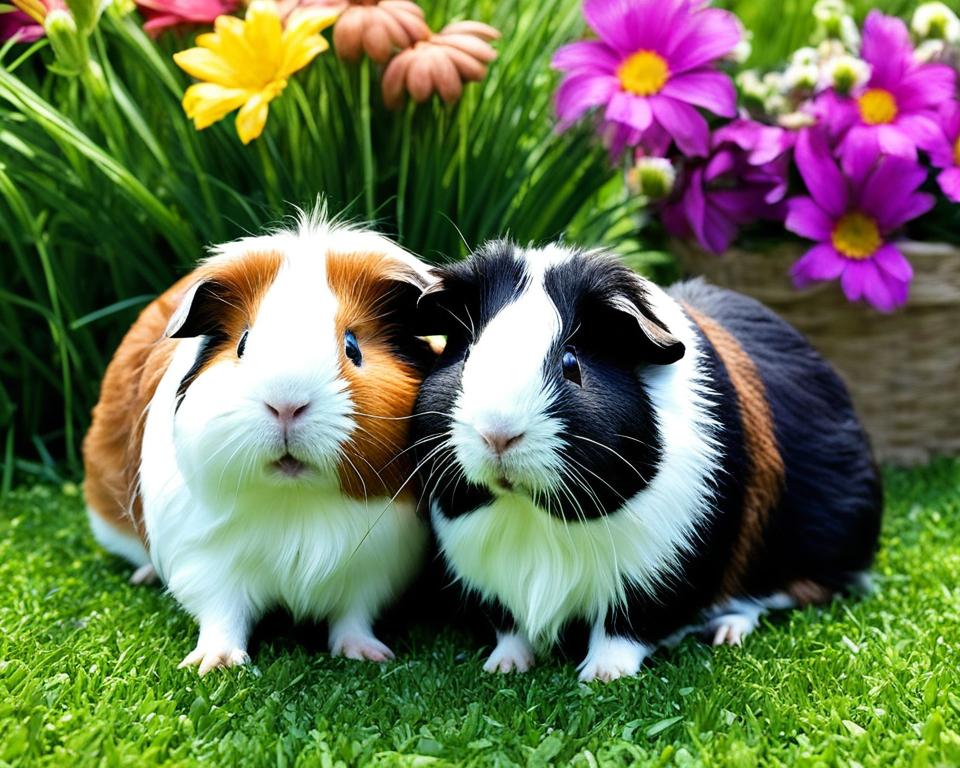
Preparing Lawn Grass for Guinea Pigs
Once you have determined that lawn grass is safe for your guinea pigs to eat, it is important to prepare it properly to ensure their health and well-being. Follow these simple steps:
- Harvest fresh grass in your yard or garden. Make sure it has not been treated with pesticides or other harmful chemicals.
- Rinse the grass thoroughly with water to remove any dirt or debris.
- Dry the grass completely. You can use a towel or let it dry in the sun for a few hours.
- Cut the grass into small pieces. This will make it easier for your guinea pigs to chew and digest.
- Place the prepared grass in a clean bowl or dish, and serve it to your furry friends.
Remember to remove any uneaten grass from their cage after a few hours to prevent spoilage and bacteria growth.
By following these steps, you can ensure that your guinea pigs are eating safe and nutritious lawn grass.
Introducing Lawn Grass to Your Guinea Pigs’ Diet
If you have prepared lawn grass for your guinea pigs, it is important to introduce it gradually into their diet. Guinea pigs have sensitive digestive systems, and a sudden change in their diet can lead to digestive problems.
Tip: When introducing new foods to your guinea pigs, it is recommended to do so one at a time. This way, you can monitor their reactions and identify any potential issues that may arise.
Start by offering small amounts of lawn grass, and gradually increase the quantity over several days. Keep a close eye on your guinea pigs’ behavior and look out for any signs of discomfort, such as a loss of appetite or diarrhea. If you notice any adverse reactions, stop feeding them the lawn grass immediately and consult your veterinarian.
Tip: Providing hay alongside the lawn grass can aid in digestion and give your guinea pigs some variety in their diet.
It is important to note that not all guinea pigs may enjoy eating lawn grass. If your guinea pigs show no interest in it, do not force them to eat it. Instead, consider other grass alternatives, such as timothy, orchard, or oat hay.
Monitoring Guinea Pigs’ Reactions to Lawn Grass
Guinea pigs can have different reactions to new food items, and lawn grass is no exception. When introducing lawn grass into their diet, it is essential to monitor their reactions closely.
Nausea and diarrhea are signs that your guinea pig may not be reacting well to the grass. Also, look out for any abnormalities in their behavior or eating habits. You should adjust their diet accordingly if these occur after feeding them lawn grass.
It is always best to introduce new foods in small quantities and gradually increase the amount as your guinea pig’s digestive system adjusts. This applies to lawn grass too. Take note of how much grass you are feeding them and how often, and gradually adjust their diet as needed.
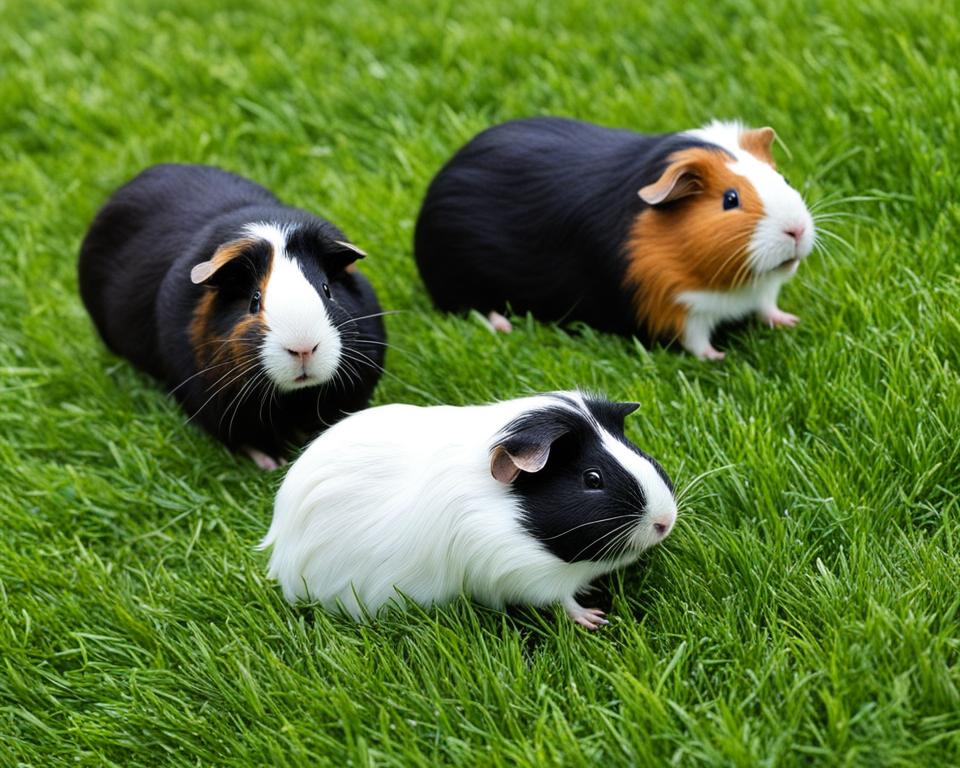
Other Grass Alternatives for Guinea Pigs
If lawn grass isn’t the right fit for your guinea pigs, there are plenty of other grass alternatives that can provide them with a diverse range of nutrients. Here are some safe and nutritious grass options:
- Timothy Hay: A long-strand grass that is high in fiber and low in protein. It aids in digestion, promotes dental health, and helps prevent obesity.
- Orchard Grass: Similar to Timothy hay, but with slightly more protein. It has a sweet taste and is rich in fiber and nutrients.
- Brome: Another long-strand grass that is enriched with protein and fiber, perfect for active and young guinea pigs.
- Oat Hay: A softer and more flavorful grass that is rich in protein and fiber, and provides a wide range of nutrients that support bone, teeth, and coat health.
Remember to introduce new grass materials gradually to your guinea pigs’ diet, and ensure that hay makes up the bulk of their daily food intake. By providing adequate grass alternatives, you can keep your furry friends healthy and happy.
Best Practices for Feeding Guinea Pigs
Guinea pigs may seem like low-maintenance pets, but they require a well-balanced and nutritious diet to stay healthy. Here are some best practices to keep in mind when feeding your furry friends:
1. Provide fresh, clean water at all times.
Avoid leaving your guinea pigs without access to clean and fresh water. It’s essential for proper digestion and hydration. Use a water dispenser or a shallow water dish, and change the water daily.
2. Offer unlimited hay.
Hay is a crucial component of a guinea pig’s diet, providing the necessary fiber for digestion and preventing digestive problems. Offer unlimited access to fresh hay, such as timothy or orchard grass.
3. Introduce fresh vegetables and fruits gradually.
While fresh vegetables and fruits are important for added vitamins and minerals, introduce them gradually and in small amounts. Too many greens can lead to diarrhea and other digestive problems. As a general rule, offer a variety of vegetables and fruits, such as bell peppers, carrots, and blueberries, in moderate quantities.
4. Avoid sugary and fatty foods.
Guinea pigs have sensitive digestive systems, and sugary/fatty foods can cause adverse reactions. Avoid feeding them foods high in sugar and fat, such as sweets and dairy products.
5. Provide a balanced diet.
Offer pellets formulated specifically for guinea pigs, in addition to hay and fresh vegetables/fruits. Make sure the pellets are fresh and not expired, and avoid mixing different brands.
By following these best practices, you can ensure your guinea pigs receive a healthy, balanced and nutritious diet that is suitable for their needs. If you have any concerns or questions about their diet, talk to your veterinarian for recommendations.
Conclusion
Feeding lawn grass to guinea pigs can be a safe and nutritious option if done correctly. It is crucial to consider their dietary needs, prepare the grass properly, and monitor their reactions closely. By introducing new food items gradually and watching for any adverse effects, you can ensure your furry friends’ health and happiness.
Remember, there are other grass alternatives available if lawn grass is not suitable for your guinea pig’s needs. Always follow best practices for feeding guinea pigs, including providing a balanced diet and clean water at all times. By taking these steps, you can provide your guinea pigs with a healthy and varied diet while ensuring their overall well-being.
FAQ
Can guinea pigs eat lawn grass?
Yes, guinea pigs can safely eat lawn grass. However, it is important to consider their dietary needs and follow certain precautions to ensure their health.
What are the nutritional requirements of guinea pigs?
Guinea pigs require a diet high in vitamin C, fiber, and hay. They also need a constant supply of fresh water and a limited amount of fruits and vegetables.
What are the potential health benefits of feeding lawn grass to guinea pigs?
Lawn grass provides essential fiber for guinea pigs, aiding in digestion. It also offers variety in their diet and can promote dental health due to its natural texture.
Are there any risks associated with feeding lawn grass to guinea pigs?
Yes, there are some risks. Lawn grass should be free from pesticides, herbicides, and any other chemicals that might be harmful to guinea pigs. It should also be free from potential contaminants like feces or other animals’ urine.
How should lawn grass be prepared for guinea pigs?
Before feeding lawn grass to your guinea pigs, make sure to thoroughly wash and rinse it to remove any potential toxins or contaminants. You can also consider growing your own organic grass for added safety.
How should lawn grass be introduced into a guinea pig’s diet?
It is best to introduce lawn grass gradually to prevent any digestive upset. Start by providing small amounts alongside their regular diet, and monitor their reactions carefully.
How can I monitor my guinea pigs’ reactions to lawn grass?
Watch for any signs of digestive upset, such as diarrhea or bloating. Also, observe their overall well-being and behavior to ensure they are thriving after the introduction of lawn grass.
What are some grass alternatives for guinea pigs if lawn grass is not suitable?
If lawn grass is not an option, you can consider feeding your guinea pigs other safe alternatives such as timothy hay, clover, dandelion greens, or cilantro.
What are some best practices for feeding guinea pigs?
Always provide fresh water and hay to your guinea pigs. Gradually introduce new foods into their diet, and avoid overfeeding. Ensure their food is free from any harmful chemicals or contaminants.
Can I feed lawn grass to baby guinea pigs?
It is generally not recommended to feed lawn grass to baby guinea pigs, as their digestive systems are still developing. Stick to their specially formulated pellets and hay until they are older.

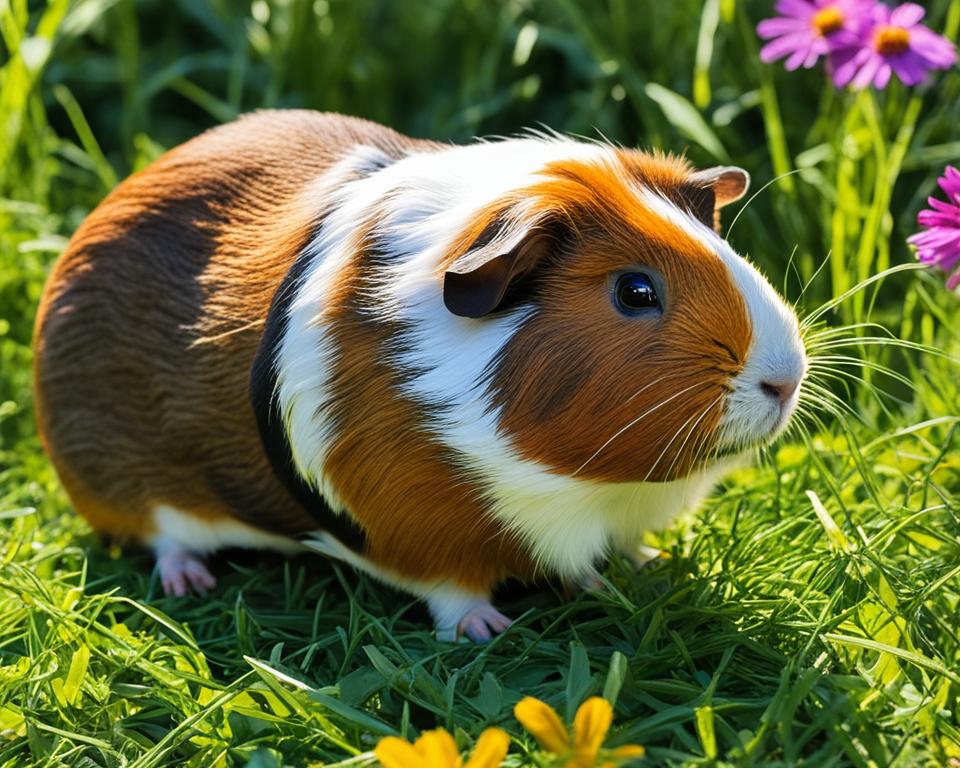
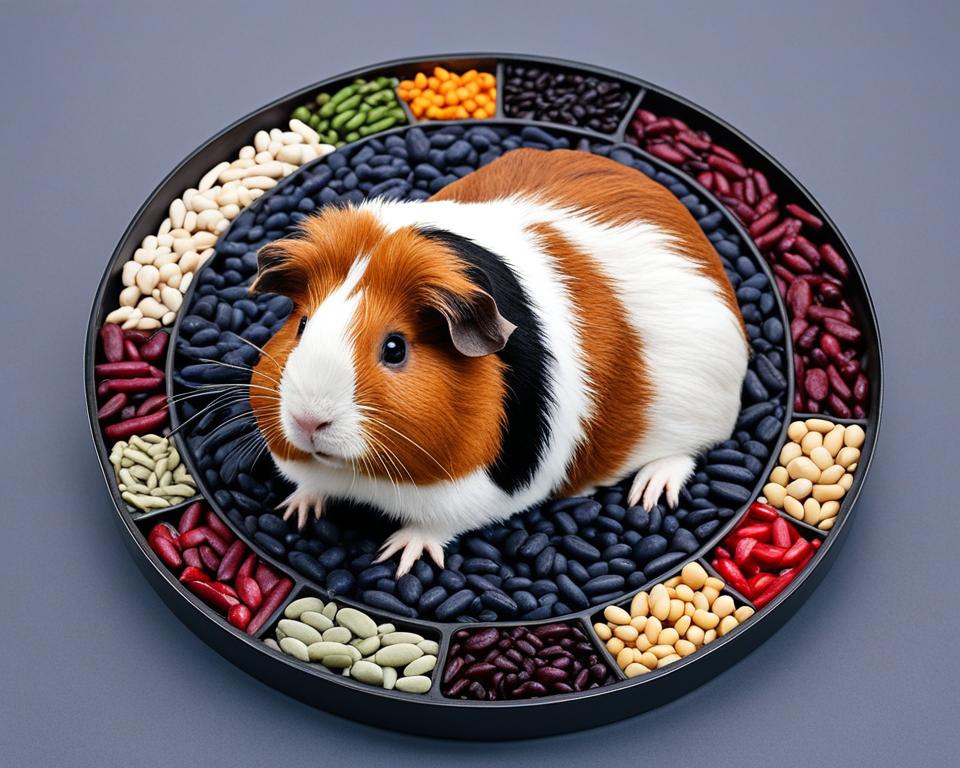
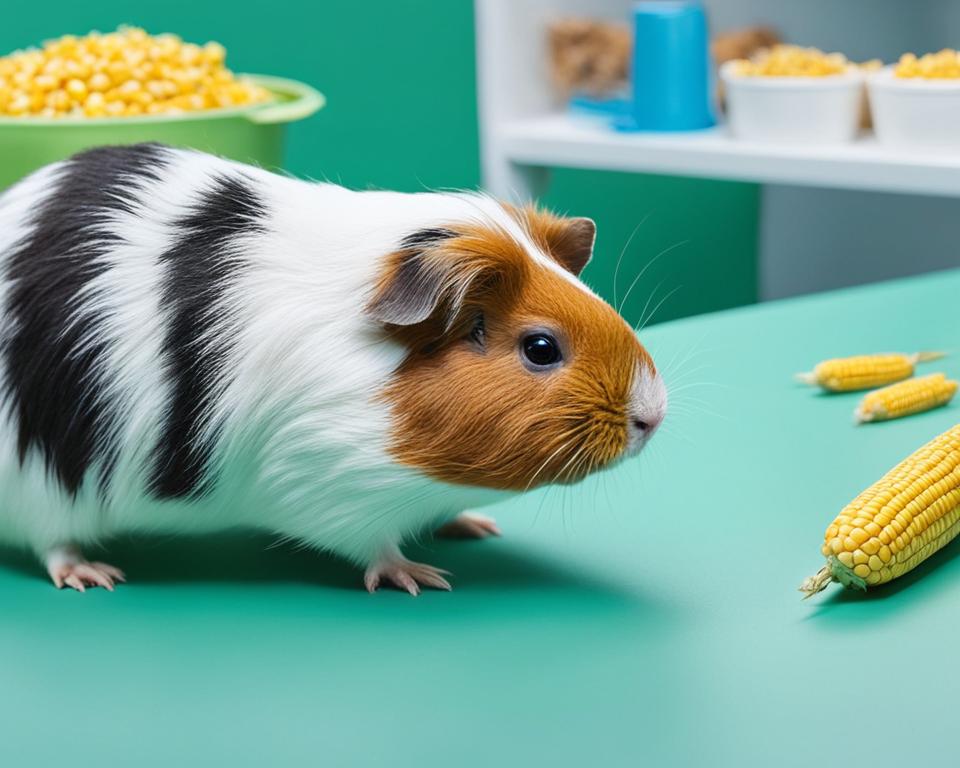
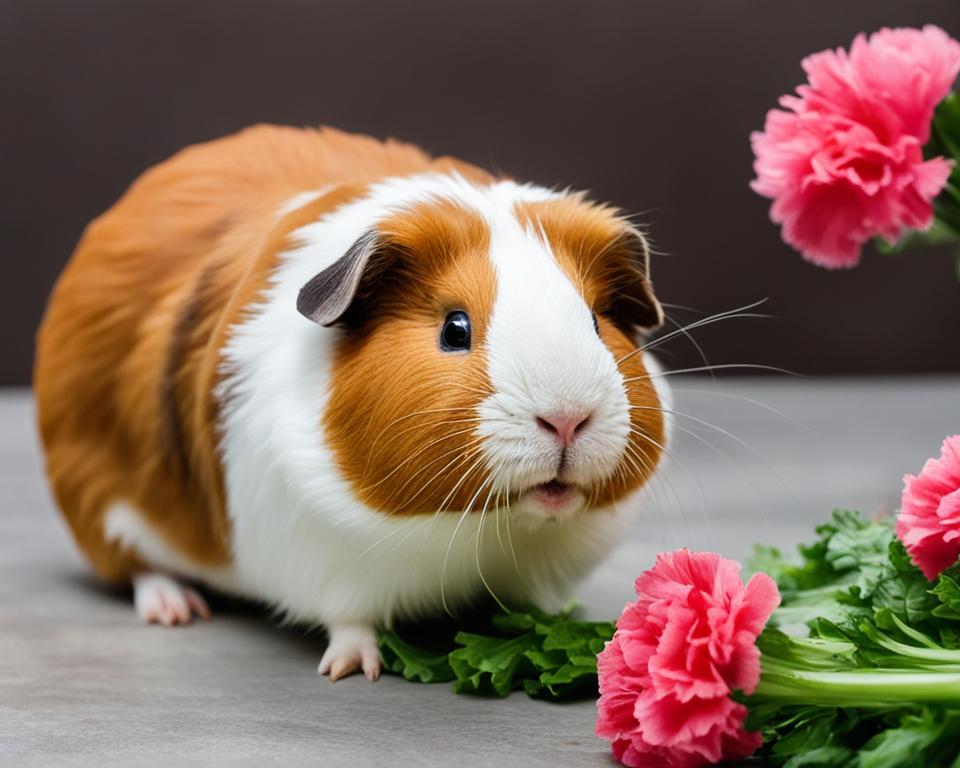
Leave a Reply